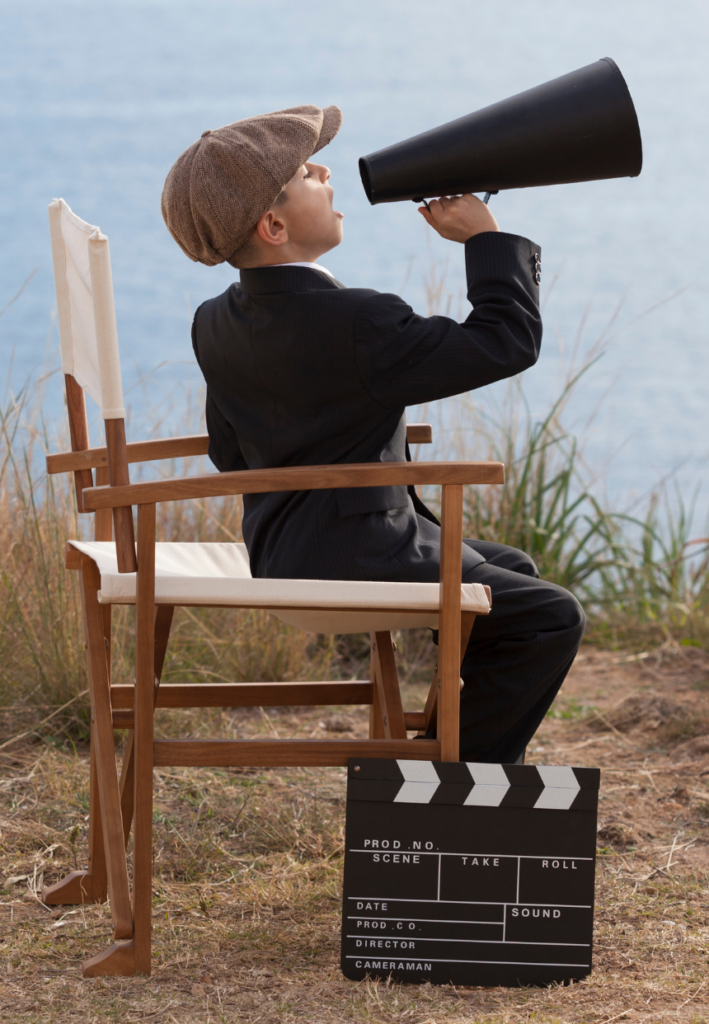Intuition Meets Strategy: Practical Tools for Empowered Decision-Making in Filmmaking and Film Industry Negotiations
by Carole Dean
Imagine walking into a meeting with a powerful studio executive. They’re offering you a contract that seems promising on the surface, but something feels off. You want to trust your instincts, but the pressure to say “yes” is overwhelming.
Now imagine if you had a tool—a reliable, intuitive guide—to help you discern the truth of the situation and make a decision rooted in your own power, not the forceful tactics of the other party.
That’s the kind of insight Dr. David R. Hawkins offers in his groundbreaking book Power vs. Force. His work isn’t just about personal growth—it’s a manual for navigating the world with clarity, integrity, and confidence.
For independent filmmakers, his teachings can be transformative, helping you make decisions with conviction, stand firm in negotiations, and tap into the true power of your creative vision.
The Science of Truth: Finding Clarity with Kinesiology
At the core of Power vs. Force is the idea that truth has a measurable energy. Using kinesiology—a method that measures the body’s responses to determine truth or falsehood—you can tap into this energy. Hawkins explains that through muscle testing, you can discern the truth of any statement, belief, or decision.
For filmmakers, this can be a game-changer. Imagine being able to evaluate whether a project aligns with your goals, whether a partnership is beneficial, or whether a potential investor has your best interests at heart.
Hawkins emphasizes the importance of precision in wording questions: instead of asking vague questions like, “Is this good?” you might ask, “Is this contract in my highest and best interest?”
The Sway Test: A Practical Tool for Filmmakers
If kinesiology testing feels intimidating, Hawkins also introduces simpler methods like the sway test. This self-testing technique allows you to gauge your body’s response to a question or object. Here’s how it works:
- Hold the object or thought in mind (e.g., a script, contract, or potential collaborator).
- Stand still with your feet shoulder-width apart.
- Ask yourself, “Is this beneficial for me?”
- Wait for your body to sway forward (yes) or backward (no).
Over time, this practice can become a trusted way to check in with your intuition. For example, before signing on to a film project, you could use the sway test to see if it resonates with your personal goals.
Understanding Power vs. Force
Hawkins defines power as an intrinsic, self-sustaining energy aligned with truth, integrity, and meaning. By contrast, force relies on coercion, manipulation, and control. Force creates resistance and is inherently unsustainable, while power uplifts and energizes.
In the filmmaking world, you’ve likely encountered both dynamics. Studios or producers may try to force you into unfavorable contracts. Force-driven strategies often rely on pressure tactics and scarcity mindsets. But when you stand in your power—rooted in your talents, values, and clear vision—you become immovable.
Hawkins writes: “Power is like a standing field that does not move. Force always moves against something, whereas power requires nothing from the outside. Power energizes, gives forth, and supports.”
As a filmmaker, your talent is your power. You don’t need to force people to recognize it; you simply need to stand confidently in it.
Standing Firm in Negotiations
Negotiations are one of the most force-laden aspects of the film industry. Contracts are often presented with urgency, as though rejecting them would be catastrophic to your career. Hawkins’ teachings remind us that force is limited—it demands energy to sustain itself. Power, on the other hand, is steady and self-assured.
When you’re offered a deal, take a step back. Ask yourself:
- Does this align with my values and long-term goals?
- Am I being pressured to act against my intuition?
- Does this opportunity energize or drain me?
Standing in your power means recognizing your worth and demanding fair treatment. Studios and investors need your talent to succeed. They may not always acknowledge it, but without filmmakers, there would be no content.
The Role of Meaning in Filmmaking
Hawkins asserts that power arises from meaning. When we pursue goals rooted in significance—such as improving lives or inspiring others—we tap into an endless source of motivation. Force, by contrast, is goal-oriented but often leaves us empty once the goal is achieved.
Independent filmmakers, at their core, are motivated by meaning. Whether you’re making a documentary to shed light on an injustice, a narrative to explore the human condition, or a comedy to bring joy, your work is driven by purpose.
Hawkins explains: “If our lives are dedicated to enhancing the welfare of others, our lives can never lose meaning.”
By staying connected to the “why” behind your filmmaking, you ensure that your work remains powerful and fulfilling.
Harnessing Empowering Attractor Patterns
Hawkins describes how certain attractor patterns, like love, compassion, and forgiveness, strengthen us, while others, like judgment and revenge, weaken us. For filmmakers, this insight can influence both creative choices and professional relationships.
For instance, when writing a script or directing a scene, consider the emotional energy it conveys. Does it inspire hope and connection, or does it perpetuate negativity? Similarly, in your interactions with collaborators, choose kindness and understanding over conflict. This doesn’t mean avoiding difficult conversations but approaching them with integrity and respect.
By aligning yourself with positive attractor patterns, you not only strengthen your work but also create an environment where others are inspired to contribute their best.
The Power of Intuition in Decision-Making
As filmmakers, we often face crossroads—choosing between projects, collaborators, or distribution strategies. While research and logic are important, Hawkins emphasizes the value of intuition.
Using kinesiology or the sway test can help you tune into your body’s wisdom. For instance:
- Before committing to a distributor, test whether the deal aligns with your goals.
- When selecting a script, check if it resonates with your creative vision.
By combining intuition with practical knowledge, you ensure that your decisions are both informed and aligned with your inner truth.
Overcoming the Industry’s Force-Driven Culture
The entertainment industry can be a force-driven environment. Studios prioritize profits, often at the expense of artistic integrity. Contracts may include clauses that limit your creative control or undervalue your contributions.
To navigate this, you must remember Hawkins’ distinction: “Force is associated with partiality; power is associated with the whole.”
Standing in your power means advocating for fair terms, protecting your creative vision, and recognizing your indispensable role in the industry. It also means choosing collaborators who respect and uplift your work rather than those who seek to exploit it.
Practical Exercises to Build Your Power
- Define Your Values
Write down your core values as a filmmaker. Use them as a compass when evaluating opportunities. - Practice Daily Affirmations
Hawkins teaches that powerful affirmations can shift your mindset. Try repeating: “I stand in my creative power. My work inspires and uplifts others.” - Use the Sway Test
Before making decisions, check in with your body. Ask, “Is this in my best interest?” - Evaluate Your Attractor Patterns
Reflect on your current projects and relationships. Do they energize and support you, or drain and weaken you? Adjust accordingly.
A Final Word: You Are the Source of Power
Hawkins reminds us that true power is self-sufficient. It doesn’t need external validation or constant reinforcement. As an indie filmmaker, you possess immense creative power. You have the ability to tell stories that matter, to inspire change, and to entertain audiences.
The next time you’re faced with a tough decision, remember this: You are the source of your power. Stand confidently in your talent, align yourself with your purpose, and trust that the right opportunities will come to you.
Let Power vs. Force be your guide—not just for your filmmaking career but for your entire creative journey. The more you align with truth, meaning, and integrity, the more unstoppable you become.
Now, go make movies that change the world.
Carole Dean is president and founder of From the Heart Productions; a 501(c)3 non- profit that offers the Roy W. Dean Film Grants and fiscal sponsorship for independent filmmakers.
profit that offers the Roy W. Dean Film Grants and fiscal sponsorship for independent filmmakers.
She is creator and instructor of Learn Producing: The Ultimate Course for Indie Film Production. Essential classes for indie filmmakers on how to produce their films.
She hosts the weekly podcast, The Art of Film Funding, interviewing those involved in all aspects of indie film production. She is also the author of The Art of Film Funding, 2nd Edition: Alternative Financing Concepts. See IMDB for producing credits


